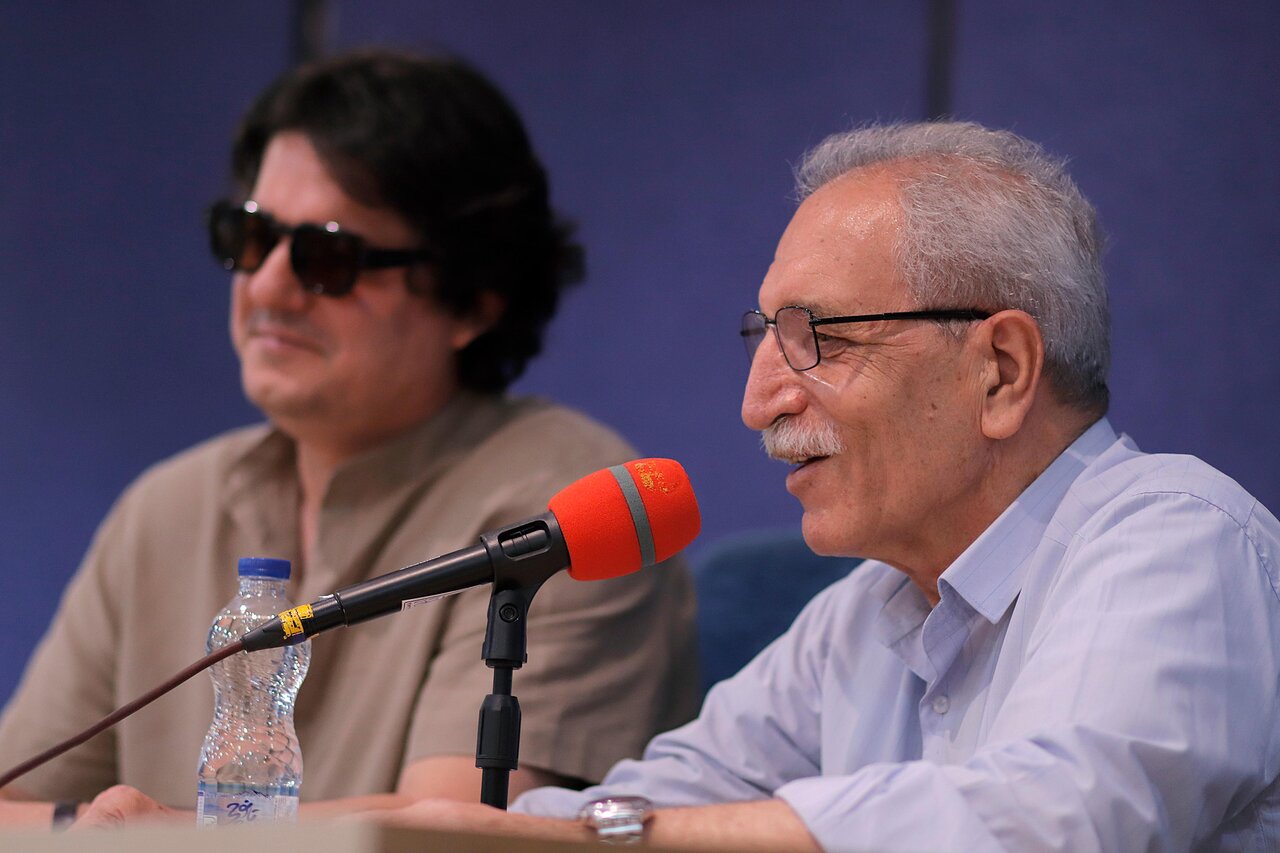Renowned Armenian author’s work celebrated in Tehran session with prominent cultural figures

TEHRAN – The unveiling and analysis of the Persian translation of the book "The Great Silence" (“Mec Irutyune” in Armenian) by the renowned Armenian author Perch Zeytuntsyan was held at Tehran’s City Theater Complex on Wednesday.
The unveiling ceremony of the book was held at the Mashahir Hall of the complex, with the presence of prominent Iranian playwrights, dramatists, and theater directors.
Translated from Armenian by prominent Iranian translator Andranik Khechumian, the book has recently been published by Ayas Publications in Tehran.
Speaking at the ceremony, Qotbeddin Sadeqi, a distinguished playwright, scholar, and theater director, analyzed all three plays included in the book and addressed the issue of identity reflected in these works. Sadeqi described Zeytuntsyan as a great playwright who has remained conscious of his nation's history.
Following him, the eminent composer and conductor Maestro Loris Tjeknavorian highlighted the historical ties between Iran and Armenia, emphasizing the longstanding friendship between the two nations rooted in their shared history.
For his part, Andranik Simonyan, a linguistic scholar and researcher, discussed the emergence of Pan-Turkism and highlighted how effectively and documentation-wise the Armenian genocide is addressed within these plays.
Mahmoud Reza Rahimi, a university professor and Iranian director, emphasized the importance of reflecting historical events in theatrical works and elaborated extensively on the necessity of this practice. He praised Zeytuntsyan's efforts in this regard.
All speakers praised Khechumian’s smooth and fluent translation. Additionally, Andranik Simonyan composed the poetry for the play in Persian.
In his turn, Andranik Khechumian expressed his gratitude for the presence of all attendees. The session was moderated by Javad Atefeh, a playwright and theater director.
Perch Zeytuntsyan (1938–2017) was a prominent Armenian playwright and screenwriter, renowned for his contributions to Armenian literature and culture. Zeytuntsyan studied at the Aghayan School in Yerevan, where he published his first short story, “Nvere” (The Gift), in 1953. His early literary works, including the acclaimed collection "Nra arajin enkere" (His First Companion), established him as a significant literary voice. Over the years, he authored numerous novels and novellas, many translated into Russian, Czech, Bulgarian, Hungarian, and Baltic languages.
Zeytuntsyan’s theatrical career began with the 1974 tragedy-comedy "Amenatkhur marde" (The Saddest Man). He wrote ten plays, such as "The Legend of the Ruined City" and "The Great Silence," often exploring themes of Armenian history, identity, and the impact of authority.
A recurring motif in his work is the Armenian genocide, a reflection of rising nationalism during the late Soviet era. His films and screenplays, including "Chronicle of Yerevan Days," further showcased his versatility. He served as Armenia’s Minister of Culture from 1990 to 1991, leaving an indelible mark on the nation’s cultural landscape and earning numerous accolades, including the State Prize of Armenia.
The Armenian Genocide was a systematic mass extermination of Armenians by the Ottoman Empire during World War I, primarily between 1915 and 1917. An estimated 1.5 million Armenians were killed through mass shootings, forced deportations, starvation, and brutal violence. The Ottoman government aimed to eliminate the Armenian population, accusing them of supporting the Russian enemy and portraying them as a threat to the empire’s stability. Armenians were forcibly removed from their ancestral homeland, many dying along treacherous marches through the Syrian desert. The genocide is widely recognized as one of the first modern genocides.
Photo: Iranian translator Andranik Khechumian speaks at the unveiling ceremony of the Persian translation of the book "The Great Silence" at Tehran’s City Theater Complex on May 21, 2025.
SAB/
